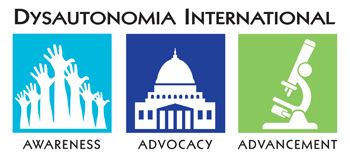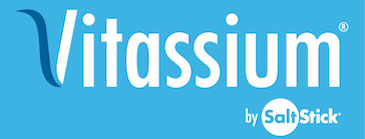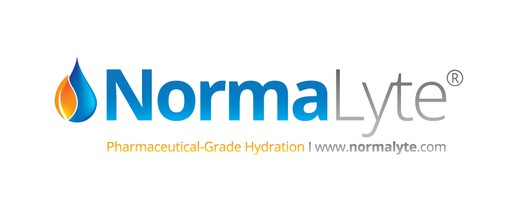| Dysautonomia International began receiving numerous grant applications in 2020 seeking funding for studies related to POTS and other forms of dysautonomia in Long COVID, a debilitating chronic illness that is developing in 10-30% of all people who have acquired a COVID-19 infection. Research suggests that 67% of Long COVID patients are developing moderate to severe dysautonomia, most often presenting as POTS or orthostatic intolerance, but in other cases patients may develop orthostatic hypotension, inappropriate sinus tachycardia, hyperhidrosis, gastroparesis and other manifestations of autonomic nervous system problems. |  
|
Our Board of Directors established the Long COVID Research Fund in 2020 to provide a dedicated stream of funding for high-quality research grants seeking to identify the biological causes of Long COVID, and to identify effective treatments for Long COVID, particularly with respect of the dysautonomia occurring in a majority of Long COVID patients. This research will benefit millions of people around the world who have developed Long COVID related dysautonomia, and millions of people with post-infectious and immune mediated dysautonomias unrelated to COVID-19.
The more you donate, the more Long COVID dysautonomia research we can fund. Please make a contribution today to help us advance the pace of research and find better treatments for individuals living with Long COVID and related post-infectious dysautonomias!
Each year we invite researchers from around the world to apply for our research grants. All Long COVID Research Fund applications are reviewed by our Long COVID Research Fund Advisory Board, independent experts, and our Board of Directors, to ensure the funded projects are of high scientific value, and provide meaningful information that can improve the lives of Long COVID patients.
Long COVID Research Fund Studies Funded To Date
2020
Autonomic Complications of Post-COVID Syndrome (Long COVID)
Principal Investigator: Mitchell Miglis, MD, Stanford University
This study will assess the incidence of post-COVID autonomic nervous system dysfunction through a large population-based survey using COMPASS-31, a validated survey instrument that can identify autonomic dysfunction. A smaller cohort of Long COVID will be evaluated in person at Stanford's autonomic neurology lab, for autonomic function testing, skin biopsy, salivary analysis and serological testing. People with Long COVID autonomic dysfunction and people with Long COVID who don't have autonomic dysfunction will be enrolled in the in-person part of the study.The goal of the study is to broader our understanding of why some people develop autonomic dysfunction after viral infections and help us understand how autonomic dysfunction contributes to disability in people with Long COVID.
2021
Characterization and Intervention Studies in Patients with Dysautonomia and Long COVID
Principal Investigator: Marcus Stahlberg, MD, PhD, Karolinska Institute
The overall purpose of this project is two-fold. First, the researchers aim to describe the biological mechanisms and identify potential novel therapeurtic targets in Long COVID patients with cardiovascular autonomic dysfunction (postural orthostatic tachycardia syndrome, inappropriate sinus tachycardia, tachycardia not meeting the POTS or IST criteria) and microvascular endothelial dysfunction. Long COVID patients from clinics around Sweden will be screened using tilt table and other autonomic testing, mast cell activation syndrome biomarkers, lipidomics, proteomics (mass spectrometry), stress-perfusion cardiac MRI, assessment of endothelial function, 6 minute walk test, quality of life and other self-reported screenings from the time of Long COVID diagnosis until four years after diagnosis. The second stage of the study includes randomized placebo controlled, double-blinded clinical trials assessing the efficacy of various interventions, including ivabradine, naltrexone, fulvic acid and enhanced external counter pulsation (EECP).
Investigation of the Platelet and Activation of the Innate Immune System in Postural Orthostatic Tachycardia Syndrome and Long COVID
Principal Investigators: William Gunning, MD and Blair Grubb, MD, University of Toledo
The purpose of this project is to test the hypothesis that post-infectious POTS and Long COVID associated orthostatic intolerance/POTS are T-cell mediated autoimmune disorders, similar to rheumatoid arthritis. Prior research indicates that innate immune system cytokines/chemokines are elevated in people with POTS and Long COVID patients; we believe the platelet is integral to activation of the innate immune system. This study will enroll people with post-infectious POTS, people who have recovered from POTS, people with Long COVID who have developed orthostatic intolerance or POTS, and healthy individuals. Various immune markers will be tested, along with a careful medical history and detailed symptom profiling. If the hypotheses proves correct, this will help us identify potential target proteins or immune cells to treat in post-infectious POTS and orthostatic intolerance triggered by COVID-19 or other infections.
2022
Check out our 2022 Call for Proposals.
We also invite you to browse our Long COVID Research Fund website, which has educational information on Long COVID related dysautonomia.
How to Support This Important Research
Donate by Credit Card
Make a secure donation through our website.
Donate by Check
Print out this Donation Form and follow the instructions on the form to mail in your donation check. If you write "Long COVID Research Fund" in the memo line of your check your donation will go directly to fund Long COVID research.
Create a Facebook Fundraiser
Create a personalized fundraising page on Facebook and ask your friends and family to donate to the Long COVID Research Fund. Be sure to let your friends and family know why the Long COVID Research Fund is important to you.
Host a Fundraiser
Hosting a fundraiser is a great way to raise awareness and raise money for research, like a Cupcakes for a Cure bake sale or a Dress Down Day for Dysautonomia Research at your school or office. Check out some other fundraising ideas for inspiration.
Employer Matching Gifts
Ask your employer if they will contribute matching funds to charities that you donate to. This is great way to double your donation to the Long COVID Research Fund. You can look up employers that offer matching grants at Double the Donation.
| | |




